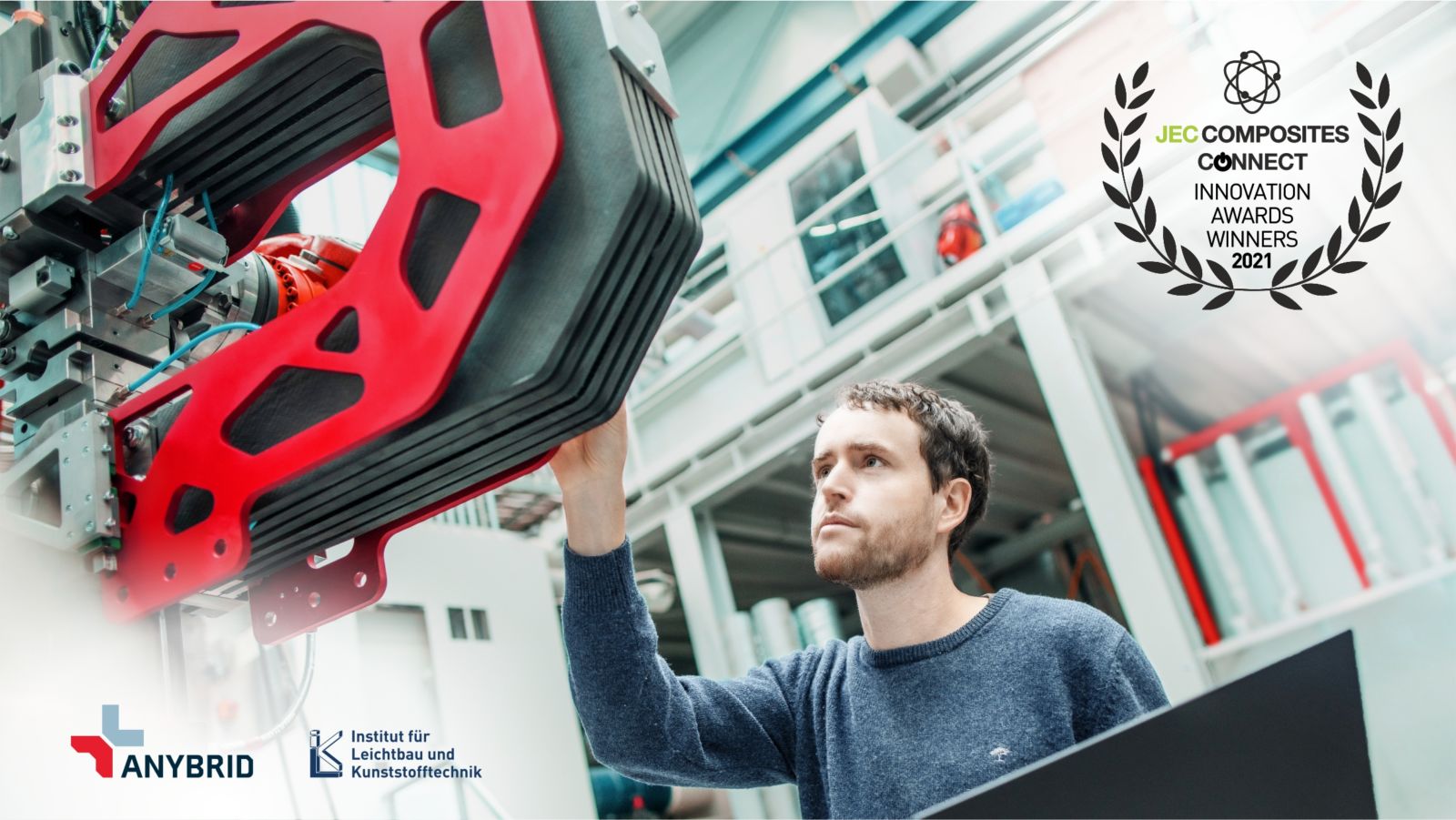11. June 2021
JEC AWARD 2021
ANYBRID is now really getting into its stride and, together with the Institute for Lightweight Engineering and Polymer Technology at the TU Dresden, wins the JEC AWARD 2021 in the "Equipment and Machinery" category.
Robotized Injection Moulding (ROBIN) technology has been awarded this year's JEC Composites Connect Innovation Award in the "Equipment and Machinery" category at this year's digital JEC Connect. This is the second prestigious award in the field of lightweight engineering for the latest ILK startup ANYBRID, following last year's AVK Innovation Award.
"For us as a young startup, this international award is the perfect boost at the right time to introduce our technology to the market," comments Dr. Michael Stegelmann, who is the sales manager at ANYBRID GmbH. "We know that our technology has enormous potential, but that does not mean that the potential is also directly recognized by all potential customers. Of course, such a signet of the JEC Award helps enormously." The management of the ILK is also delighted with the award, as Prof. Niels Modler points out: "The idea of mobile injection molding is so simple and ingenious at the same time that it puts many conventional processing methods in the shade all at once. As lightweight builders, we teach our young talents from the very beginning to question conventional construction methods and thereby exploit the potential of novel materials and processes to the maximum. The ANYBRID team has succeeded excellently in this. We look forward to accompanying them as a partner on their further journey."
With ROBIN, the founding team has developed a revolutionary technology for the production of hybrid components, which is characterized by the fact that the machine technology has become a flyweight thanks to high-performance materials and efficient lightweight design. For example, the injection molding system, which weighs around 140 kg and has a clamping force of up to 12 tons, can be mounted on classic industrial robotics or gantry systems for the first time and can thus be moved freely in space. In this way, one or more ROBIN systems can be ideally integrated into continuous production lines such as extrusion or pultrusion. Thus, at a stroke, previous restrictions on the design of profiles are dissolved and an innovative opportunity is created for a large number of manufacturing companies to stand out from the mass market.
Tony Weber, responsible for technology and production in the ANYBRID team, points out: "The trials within the last year show a wide range of applications for the technology, especially with regard to the functionalization of different semi-finished products such as steel, aluminum or also wood." In the first pilot project together with INOMETA GmbH and Mitsui Chemicals Europe GmbH, it has already been possible to successfully functionalize coiled thermoplastic carbon pipes with the ROBIN system. In this way, the ROBIN system can also be used in the future as an ideal supplement in production cells for profile manufacture. The ANYBRID team took this as an opportunity to also test the functionalization of wooden rods and aluminum tubes with the same tooling system. "The validation of the technology on real components and processes is an important step for market access, so that we can also present completely new possibilities to the wood processing industry," states Tony Weber.
In a number of further pilot projects, the ANYBRID team would now like to further demonstrate the versatile potentials in order to sell the first ROBIN systems as early as next year. Until then, the team can rely on the funding within the framework of an EXIST research transfer and the support of the institute.
Reactions from the media:

